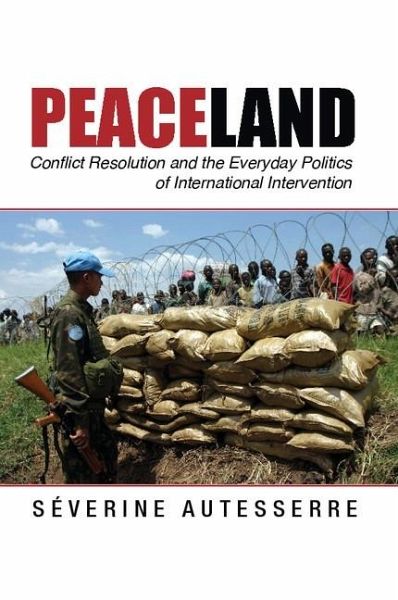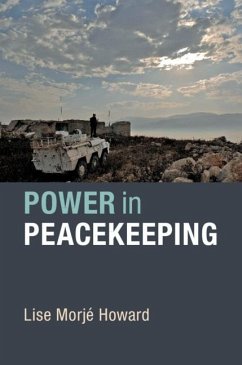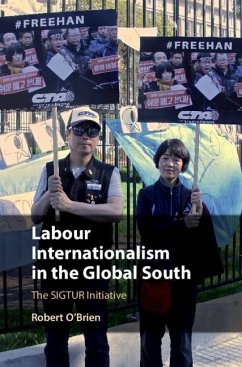
Peaceland (eBook, ePUB)
Conflict Resolution and the Everyday Politics of International Intervention

PAYBACK Punkte
9 °P sammeln!
This book suggests a new explanation for why international peace interventions often fail to reach their full potential. Based on several years of ethnographic research in conflict zones around the world, it demonstrates that everyday elements - such as the expatriates' social habits and usual approaches to understanding their areas of operation - strongly influence peacebuilding effectiveness. Individuals from all over the world and all walks of life share numerous practices, habits, and narratives when they serve as interveners in conflict zones. These common attitudes and actions enable for...
This book suggests a new explanation for why international peace interventions often fail to reach their full potential. Based on several years of ethnographic research in conflict zones around the world, it demonstrates that everyday elements - such as the expatriates' social habits and usual approaches to understanding their areas of operation - strongly influence peacebuilding effectiveness. Individuals from all over the world and all walks of life share numerous practices, habits, and narratives when they serve as interveners in conflict zones. These common attitudes and actions enable foreign peacebuilders to function in the field, but they also result in unintended consequences that thwart international efforts. Certain expatriates follow alternative modes of thinking and acting, often with notable results, but they remain in the minority. Through an in-depth analysis of the interveners' everyday life and work, this book proposes innovative ways to better help host populations build a sustainable peace.
Dieser Download kann aus rechtlichen Gründen nur mit Rechnungsadresse in A, B, BG, CY, CZ, D, DK, EW, E, FIN, F, GR, HR, H, IRL, I, LT, L, LR, M, NL, PL, P, R, S, SLO, SK ausgeliefert werden.













